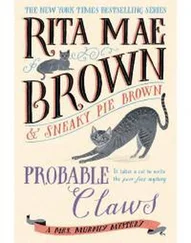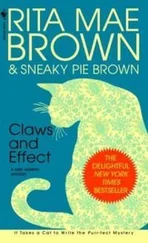The granary- oak floor shone. The sofa and chairs, covered in a dark tartan plaid, added color. A gorgeous painting, a hunt scene by Michael Lyne, hung over the fireplace. The walls, covered in framed photographs, bore testimony to Big Mim’s successes in the show ring and the hunt field. She also had a photograph of Mary Pat Reines jumping over a fence in perfect, perfect form. Ever since she was young, this photo had prodded her on. She’d look at it and vow to ride more elegantly. Mary Pat had been Alicia Palmer’s protector and lover when Alicia was in her twenties. Big Mim had never realized how a fierce rival pushes one to excellence until Mary Pat passed away. She missed her socially and truly missed her in the show ring. In some ways, the world had come full circle. Big Mim struck terror in the hearts of younger competitors because she was as elegant over fences as Mary Pat had been. And Alicia had come home from Hollywood once again to be part of the community.
“Fire feels good. Nothing quite like it, the hardwood odor, the flickering glow.” Fair gratefully sank into the deep chair.
“In the old days, a small wood- burning stove would often be put in the tackroom. Not the safest solution. I remember the barn rats—what my father called ‘the grooms’— huddled around the potbellied stove. There they’d be, wiping down the tack, breaking apart the bridles. In those days the bits were sewn into the bridles. Looks better than how it is today.” She paused a moment, then smiled. “The vice of the old, recalling the golden years that correspond to one’s youth.”
“Your golden years never stopped.” Fair complimented her, and in truth, Big Mim looked marvelous for a woman in her seventies.
“Now, now,” she chided, but loved it. “Drink?”
“You know what, I’m going to fix myself a cup of tea.You stay seated.”
“Then I’m not much of a hostess.” She watched as he rose to go to the small kitchen area.
“You’re the best hostess in the county and the best fundraiser, too.”
“The second-oldest profession.” She put her feet up on a hassock after removing her paddock boots, which were slip-ons.
Fair turned on a faucet specially designed to produce water just a hair under boiling. “I keep meaning to ask you where you got this and then I forget.”
“The boiling-water tap?”
“Yes.”
“Most plumbing supplies have them.”
“Think I’ll get one for Harry for Christmas. No, I’ll get two. One for the house and one for the barn.”
“She’ll like that.”
“Got her a necklace to match the ring I bought her when we were in Shelbyville.”
“She’ll like that, too. Harry is a very good-looking woman. It just takes a miracle to get her out of her jeans and into a dress.”
“Actually, Big Mim, I like getting her out of her jeans.”
They both laughed.
“I would imagine her Christmas spirit and yours are somewhat dimmed by what you saw. Rick called me, of course.”
The sheriff knew to keep Big Mim in the pipeline. There would be hell to pay if he didn’t; plus, her connections had helped him many a time. Big Mim knew everyone, and she had many, many favors she could call in.
Fair sipped his tea, a bracing Darjeeling. “No one likes coming upon a dead body. It upset Harry because she’d just talked to him that afternoon. She said he was committed to the order, to doing good in life.”
“I expect most of the brothers are making up for some perceived or real sins. And some people are cut out for the contemplative life.”
“I’m not one of them.”
“Obviously not.” She smiled.
“If Rick talked to you, then you know whoever slit his throat did so with skill and speed.”
“Yes.” She paused. “And Christopher gave no alarm.”
“No.”
“Strange. And no footprints in the snow?”
“The snow was mashed down,” he replied.
“If the killer is smart, and I reckon he is, he could have walked backward in his footsteps until it was safe to turn around.”
“Never thought of that.” Fair paused a moment. “Harry thinks there will be more killings.” He half-smiled. “You know Harry.”
“Let’s hope she’s wrong, but the fact that this had to be well thought-out and fairly quickly executed—at the back of the tree farm, which was open to the public—suggests a killer with a good mind. You know what I mean: a smart person, however misshapen his moral code, with perhaps an assistant.”
“Ah. Never thought about an assistant.”
“The work would go more quickly.” She stopped herself, then continued, “What I don’t understand is why someone didn’t hear them.”
“The element of surprise, perhaps? Then again, what if he knew his killer? Sure would simplify the process.”
“Yes.” She folded her hands together.
“And the Christmas tree farm, like any business, has peak hours of activity. In this case, people would come in the largest numbers after work. Brother Sheldon was up front. He’d occupy them.”
“Think Brother Sheldon was in on it?”
“No. He did seem genuinely distraught, and he passed out. I’ve never passed out. Must be a strange feeling.”
“I did once, in Venice of all places. Felt a little weak and woozy. Next thing I remember is waking up with Big Jim picking me up and people speaking in Italian so fast I couldn’t understand a word. It could be, just to play devil’s advocate,” she switched back to the primary subject, “that Brother Sheldon was acting or that he hadn’t anticipated how the sight would affect him.”
“The passing out was genuine. I really don’t think he was part of the murder. Of course, Harry and I were there in the dark. We probably missed things.There was no sign of struggle, but there was blood all around the tree. I know I missed a lot.”
“Anyone other than a law- enforcement officer would. And even they miss things sometimes.”
“Funny thing, though. Harry says she doesn’t want a tree now. I expect she’ll change her mind. She’ll see trees everywhere, so maybe the emotion will pass.”
“I didn’t know Christopher Hewitt. I knew him as a child. After all, everyone sees everyone else, and he was close in age to Little Mim and you all, but I didn’t know him. He wasn’t part of your crowd. I knew what everyone else knew: the insider- trading scandal. He seemed mild enough. But then, perhaps successful criminals always do—the kind that steal millions, I mean.”
“White-collar crime is so different from what I think of as lower forms of crime: assault and battery, murder, petty theft. Those crimes, I think, are committed by people with poor impulse control. Low normals, really.” He used the expression for low- normal intelligence. “White- collar crimes demand intelligence, a bland exterior for the most part, and vigilance. Constant vigilance to cover your tracks.” He thought a moment. “I suppose premeditated murder and large- scale robbery demand intelligence.”
Читать дальше












